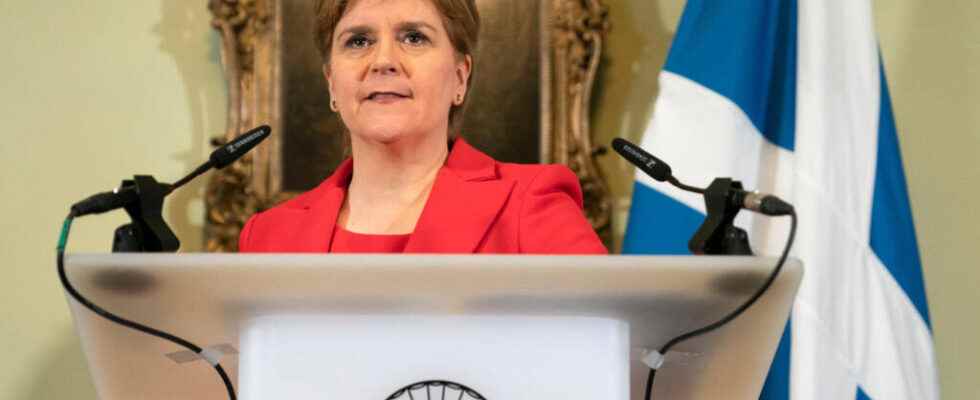After a lifetime of service to Scottish independence and almost a decade in office, Nicola Sturgeon is stepping down from the stage. The Scottish Prime Minister and patron of the SNP, the Scottish national party, presented her resignation on Wednesday January 15, to everyone’s surprise.
A progressive and charismatic lawyer, considered a prodigy of Scottish politics, Nicola Sturgeon was as feared in London as she was admired in Edinburgh for her ease and outspokenness. She will have implemented several social reforms, but missed her primary objective: to make the British government give in and allow her country to leave the United Kingdom. Interview with Claire Breniaux, specialist in Scotland and professor at the University of Burgundy, who examines ten years of power.
RFI: In her speech announcing her resignation, Nicola Sturgeon says that today’s Scotland is fairer and that Scottish politics are fairer than when she took office in 2014. What is your assessment of his years of power?
Claire Bréniaux: His track record is pretty good. First, the SNP kept its majority in the Scottish government and achieved very good results in the elections. She also came out of the Covid crisis well. And she has pushed things forward in terms of social justice, which is the SNP’s main battle-horse apart from independence. In this regard, she and her government have not escaped criticism, of course, but Nicola Sturgeon has shown herself to be very devoted to the independence cause, which she has constantly brought back into the public debate. This can be seen in particular with her request to the British Supreme Court, in which she demanded the organization of a second independence referendum in Scotland.
Why does she say in her speech that public opinion about her has becomeand a brake? She talks about clichés and preconceptions that undermine political debate.
Indeed, she was the subject of criticism, especially from the opposition, but also in her camp, in particular on the subject of transgender people. Tempers flared when several texts on this topic were debated and this caused the departure of some members of his party.
Has its popularity suffered?
Yes and no, she remains very charismatic. His resignation is surprising, very unexpected. What weakened it was the decision by the British Supreme Court at the end of last year that the Scottish Parliament does not have the right to hold this second independence referendum on its own. This perhaps symbolizes a possible breathlessness of the independence movement, even if it is still strong in Scotland. She could have told herself that it was the right time to resign.
We knew Nicola Sturgeon for her fight for independence. As leader of the Scottish National Party, Scotland’s main independence party, would you say that she has succeeded in advancing the cause of independence since coming to power?
Absolutely. To be convinced of this, it suffices to take into consideration the very good scores achieved by the SNP in the local elections, not to mention an exceptional score in the British parliamentary elections: third out of all the parties, out of a whole A multinational state made up of four nations is quite impressive. Admittedly, we must not forget that the organization of a new referendum in the years to come is going to be very complicated, but whatever the case, yes, we can say that Nicola Sturgeon really participated in the survival, even to the development of the independence movement in Scotland.
She claimed to remain a member of parliament, at least initially. Do we know who can replace her as First Minister of Scotland?
Maybe John Swinney, his current right-hand man. He is the person with the most experience as a leader within the SNP. But I think it’s very open. The resignation of Nicola Sturgeon takes everyone by surprise.
► To read also: European of the week – United Kingdom: Nicola Sturgeon, Scottish independence in the body
